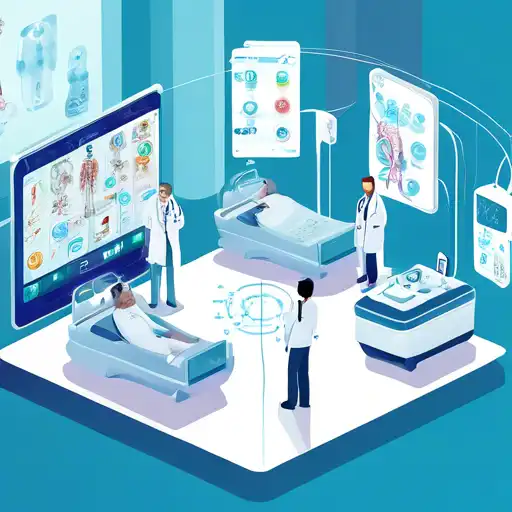Introduction to IoT in Healthcare
The integration of the Internet of Things (IoT) in healthcare is transforming the way medical services are delivered, making it a true game changer in the industry. By enabling devices to communicate and share data, IoT technologies are improving patient care, enhancing operational efficiency, and reducing costs.
How IoT is Changing Healthcare
IoT in healthcare encompasses a wide range of applications, from remote monitoring to smart sensors and medical device integration. These technologies allow for real-time health monitoring, ensuring timely interventions and personalized patient care.
Remote Patient Monitoring
One of the most significant benefits of IoT in healthcare is the ability to monitor patients remotely. Wearable devices can track vital signs such as heart rate, blood pressure, and glucose levels, transmitting this data to healthcare providers in real time.
Smart Hospitals
IoT is also revolutionizing hospital operations through smart hospitals. These facilities use IoT devices to manage inventory, track medical equipment, and even monitor the hygiene of healthcare workers to prevent infections.
The Benefits of IoT in Healthcare
The adoption of IoT technologies in healthcare offers numerous benefits, including improved patient outcomes, reduced healthcare costs, and enhanced patient experiences. By leveraging data analytics, healthcare providers can make informed decisions, leading to better diagnosis and treatment plans.
Enhanced Patient Care
IoT devices provide healthcare professionals with access to real-time data, enabling them to offer more personalized and timely care. This is particularly beneficial for patients with chronic conditions who require constant monitoring.
Operational Efficiency
IoT technologies streamline hospital operations, reducing wait times and improving resource allocation. Automated systems can manage patient flow, schedule appointments, and even predict patient admissions, optimizing the use of healthcare facilities.
Challenges and Considerations
Despite its benefits, the implementation of IoT in healthcare comes with challenges, including data security and privacy concerns. Ensuring the confidentiality and integrity of patient data is paramount, requiring robust cybersecurity measures.
Data Security
With the increasing amount of sensitive health data being transmitted, protecting this information from breaches is a critical concern. Healthcare organizations must invest in secure IoT solutions and comply with regulations such as HIPAA.
Integration with Existing Systems
Another challenge is the integration of IoT devices with existing healthcare IT systems. Ensuring compatibility and interoperability is essential for the seamless operation of IoT technologies in healthcare settings.
Future of IoT in Healthcare
The future of IoT in healthcare looks promising, with advancements in AI and machine learning further enhancing the capabilities of IoT devices. These technologies will continue to drive innovation, offering new ways to improve patient care and healthcare delivery.
As IoT technologies evolve, we can expect to see more personalized and efficient healthcare services, making it an exciting time for both healthcare providers and patients. The potential of IoT in healthcare is limitless, promising a healthier future for all.
